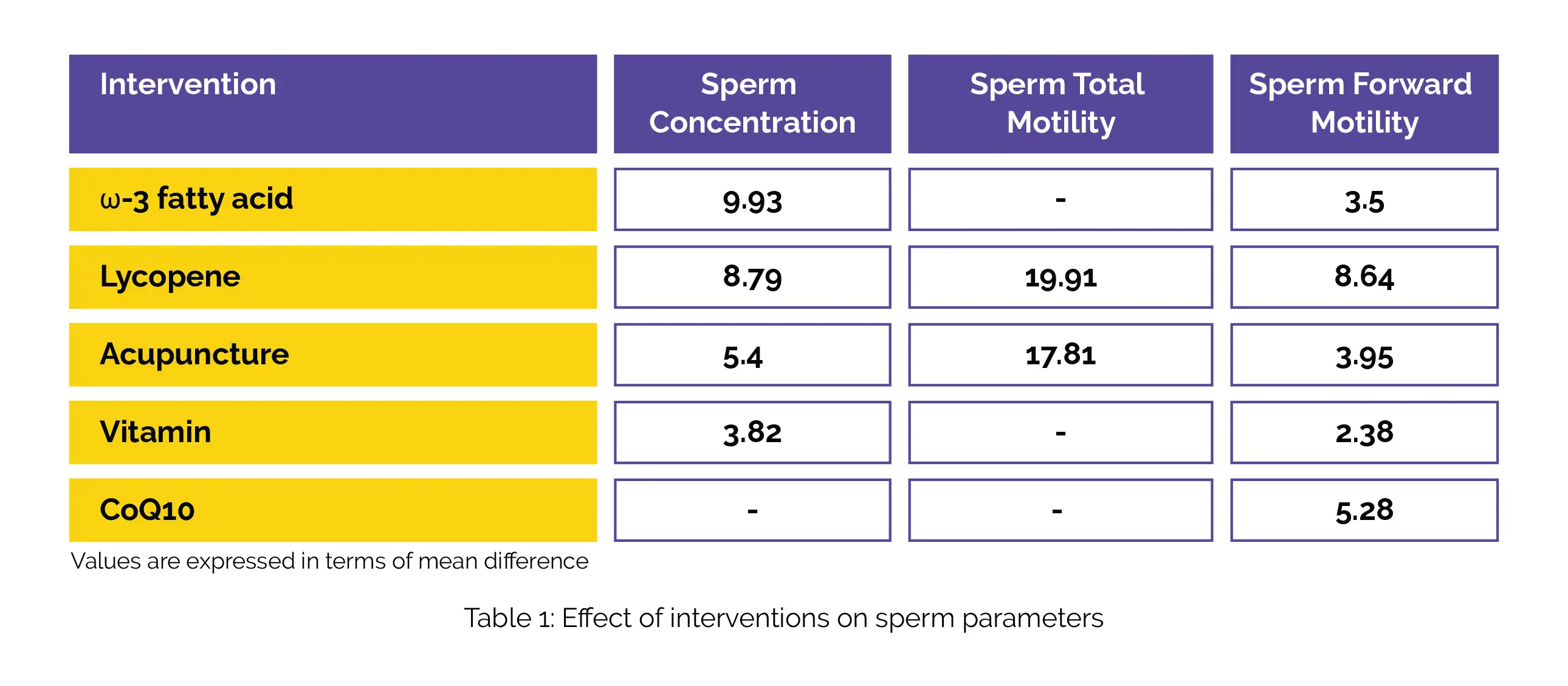Categories
Change Password!
Reset Password!


Dietary supplementation with antioxidants along with acupuncture, exercise, and intake of nutrient-rich foods can profitably regulate pregnancy rate, improve sperm quality parameters, and impact male infertility.
A systematic review and network meta-analysis depicted that antioxidant supplementation, including selenium, zinc, omega-3 fatty acids, Coenzyme Q10 (CoQ10), and carnitine, along with acupuncture, exercise, and a diet rich in these nutrients, can effectively improve male infertility and pregnancy rates. These measures positively impact sperm quality parameters and overall reproductive health. The objective of Chen Z et al. was to explore the usefulness of non-pharmaceutical interventions for male infertility.
A comprehensive review of randomized clinical trials (RCTs) was conducted, encompassing studies retrieved from Cochrane Library, China National Knowledge Infrastructure (CNKI), Embase, Wanfang database, MEDLINE, and PubMed. Utilizing network meta-analyses, the impact of the non-pharmaceutical approach on semen parameters was determined. Findings from the analysis revealed notable benefits of ω-3 fatty acid, lycopene, acupuncture, and vitamin in boosting sperm concentration.
Acupuncture demonstrated a remarkable advantage over placebo in enhancing sperm total motility, and the effect of lycopene was notably superior to placebo. Furthermore, lycopene, CoQ10, acupuncture, ω-3 fatty acid, and vitamin displayed profound benefits in the betterment of sperm forward motility (Table 1).

Hence, interventions like exercise, acupuncture, lycopene, ω-3 fatty acids, CoQ10, zinc, carnitine, vitamins, selenium, and nutrient-rich foods improved sperm quality and can be used for treating male infertility.
Aging
Effectiveness of non-pharmaceutical intervention on sperm quality: a systematic review and network meta-analysis
Chen Z et al.
Comments (0)